
Children in Ukraine hope to return to classrooms this fall
09/09/2024
This year, nine-year-old Arkhip will start fourth grade. He lives in Pervomayskyi, a small town 90 kilometres from Kharkiv, Ukraine. The boy is proud of the school diary, notebooks and stationery that his family has bought for the new school year. Among his new belongings is a tracksuit that he will wear for physical education classes in his bedroom – like all his other lessons, PE has been held online for over two years.
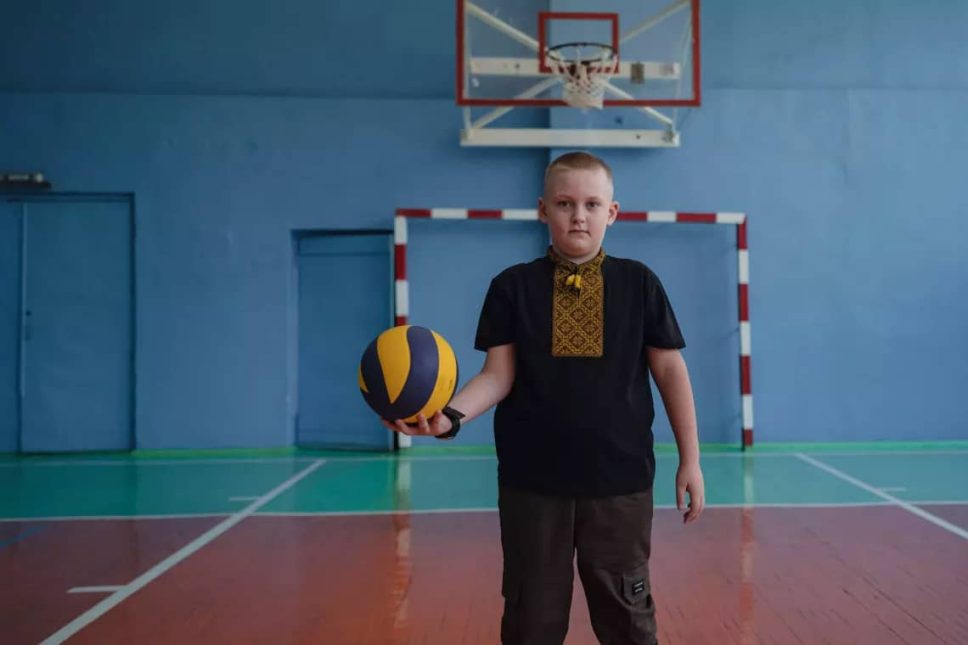
In total, Arkhip has only ever attended school in person for around four months. In first grade, the COVID-19 pandemic led to a quarantine and, in 2022, the full-scale war broke out, forcing him to study remotely due to safety reasons.
“When I was at the lyceum, my day was fun,” he says, sadly. “I came home in a good mood. I made friends there and talked to them a lot. My favourite subjects were mathematics, Ukrainian and physical education. Our lyceum had a big gym, and it was great to play ball there.”
“I was sad when I couldn’t go to school anymore. My mother explained it was because of the war.”
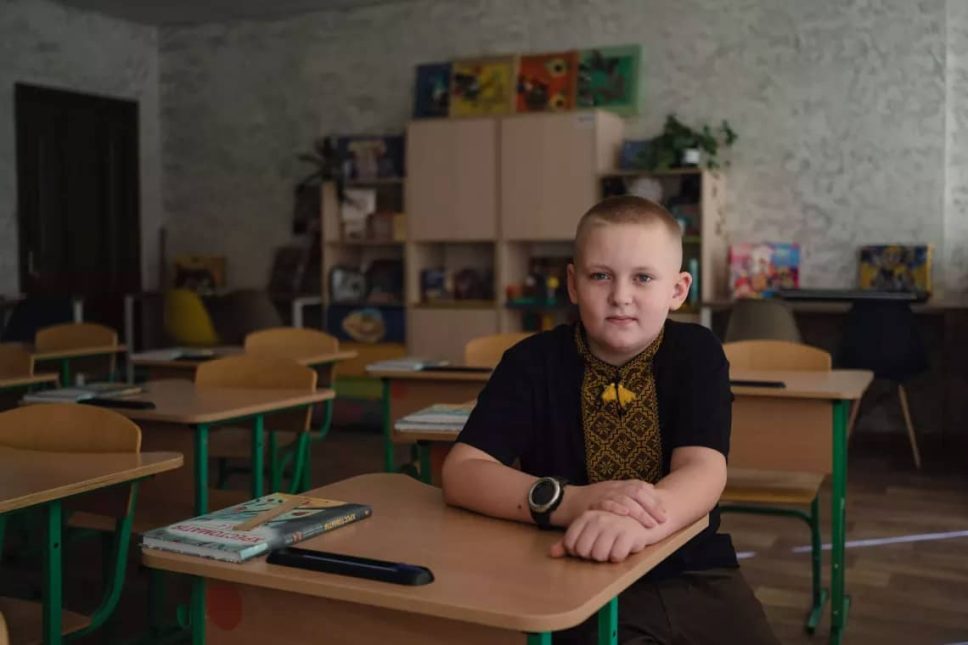
Arkhip says he has grown accustomed to studying at home – his parents have set up a large monitor connected to his laptop to make it easier for him to learn. Throughout the last school year, he had five lessons a day, but frequent power outages caused by shelling often interrupted his learning.
This summer, Arkhip has been attending catch-up lessons funded by the United Nations Children’s Fund (UNICEF) to make up for lost time in his education. He dreams of becoming a policeman like his father, so he understands the importance of studying hard and learning as much as he can. At the local learning centre, he and his classmates are taught maths and Ukrainian, along with creative subjects. The children are also helped to develop communication skills, which is especially important for primary school students who have been studying online.
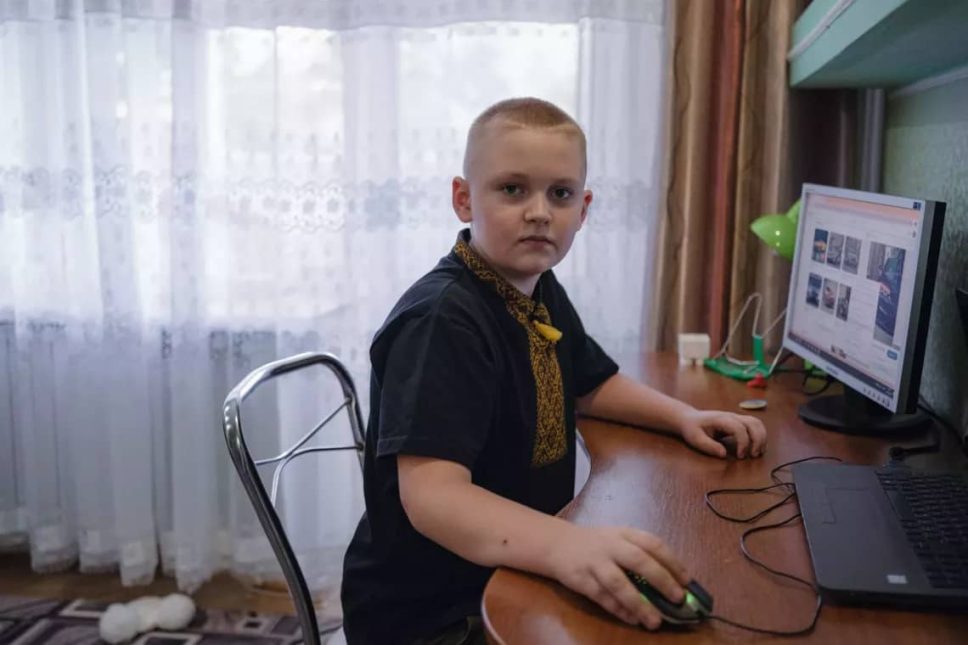
While Arkhip catches up with the curriculum, preparations for in-person learning are underway at his school, where classrooms are being set up in the basement.
“My friends will study there with me,” he says, hopefully.
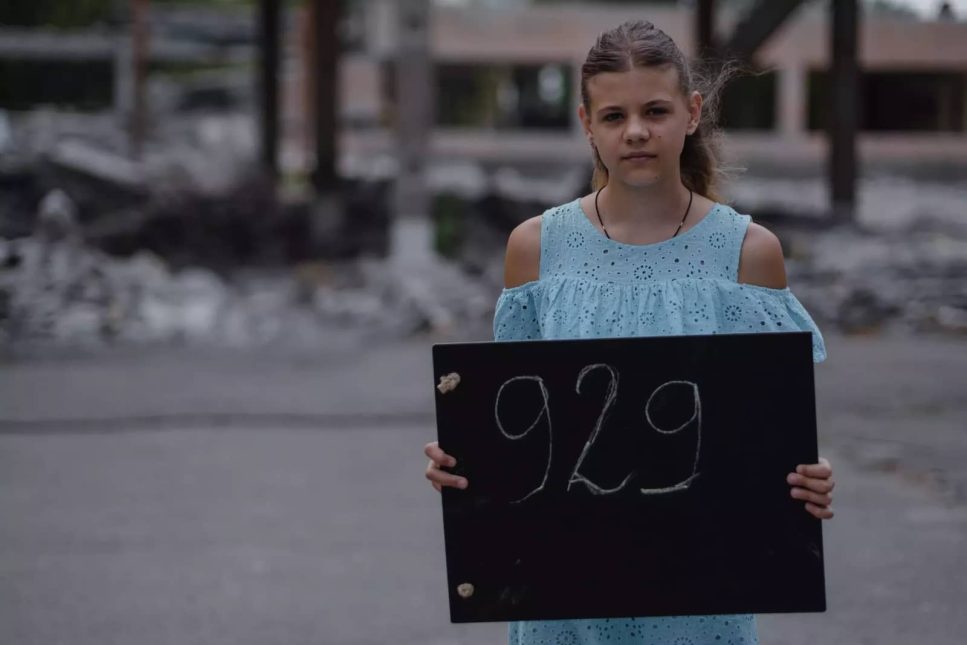
“I don’t even know where each classroom is in the school anymore.”
Eleven-year-old Zlata, who is preparing to start sixth grade, lives in the village of Panutyne, 50 kilometres from Pervomayskyi. Not far from her home, a school where 500 students once studied was destroyed by a rocket strike in September 2022. Fortunately, Zlata’s lyceum remains intact, and its shelters are being repaired so that students will be able to attend some classes in person.
“I’m really looking forward to it,” she says. “My school is just a five-minute walk away. I’ve been studying online since third grade, and I miss the lyceum so much. I can’t even remember where all the classrooms are.”
“If we’re allowed to go back, it’ll be like re-discovering the school.”
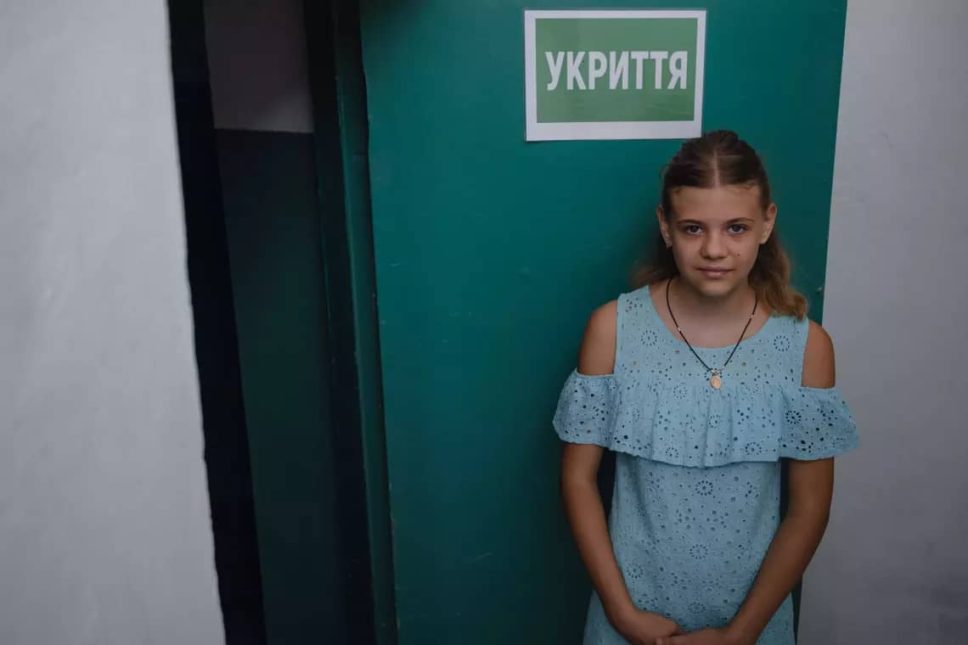
Zlata is an excellent student but finds that the hardest part of distance learning is staying motivated.
“Sitting in front of the computer every day becomes routine”.
“At first, it was tough studying remotely. My eyes would get tired from staring at the computer or phone all the time. Now I’m used to it, but sometimes my younger brother and my mother distract me. My mom works as a physical education teacher and teaches remotely too. Sometimes, during my lessons, I can hear her teaching classes,” she says.
Zlata herself is not a big fan of physical education.
“There’s just not enough space in my bedroom to do exercises that need a gymnasium,” she says.
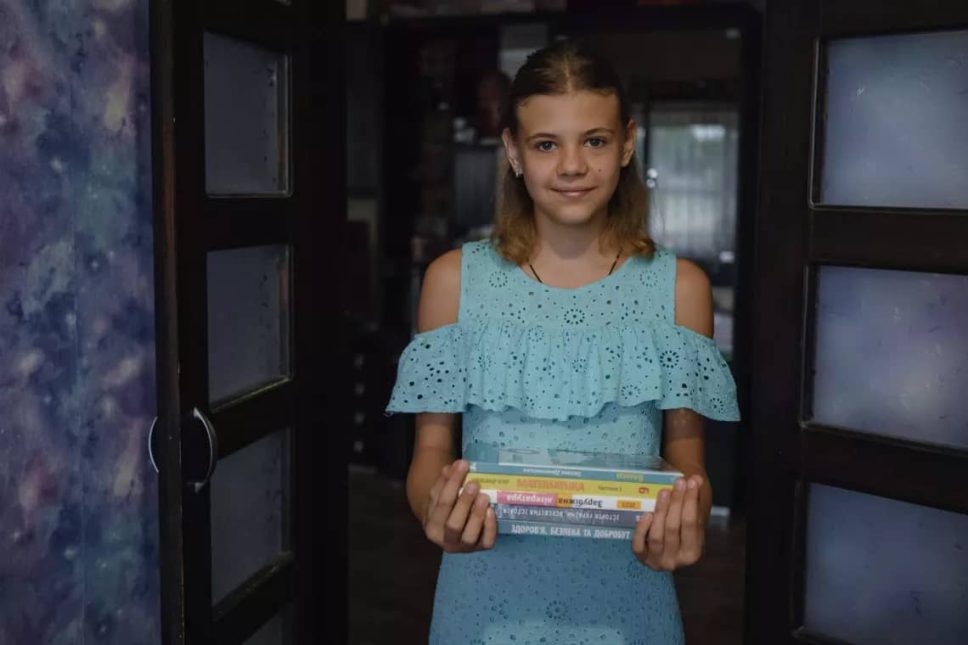
Zlata says that learning Ukrainian and foreign literature remotely can be challenging. However, she is determined not to give up and believes the knowledge she gains at the lyceum will help her pursue a career as either a rescuer or a psychologist. The youngster has given up her former dream of becoming a pastry chef, deciding that, in difficult times, it is more important to help those in need.
This summer, Zlata has been attending catch-up lessons funded by UNICEF to make up for lost time in his education.
“I want to go back to school and help rebuild the schools that were destroyed. Not going to school makes me sad.”
In 2022, UNICEF supported nearly 1.3 million children in accessing both formal and non-formal education. This year alone, more than 361,000 children have benefited from these efforts. Over 35,000 students have attended catch-up classes provided by UNICEF and its partners, with funding from the European Union, the Global Partnership for Education (GPE), and the governments of Luxembourg, Germany, Japan and Norway.
Stories
-
Katarina Mathernova: If Ukraine had a human face and a human spirit, it would be 10-year-old Roman Oleksiv
-
A regional mission to drive social entrepreneurship: the story of Ksenia Kosukha
-
EU restores safe water supply for 100,000 Ukrainians affected by war
-
Promoting IT during the war: Lviv IT cluster and how EU4Digital helps
-
Frontline digitalisation: Kharkiv IT Cluster collaborations
-
How EU4Youth is driving opportunity and success among young Ukrainians